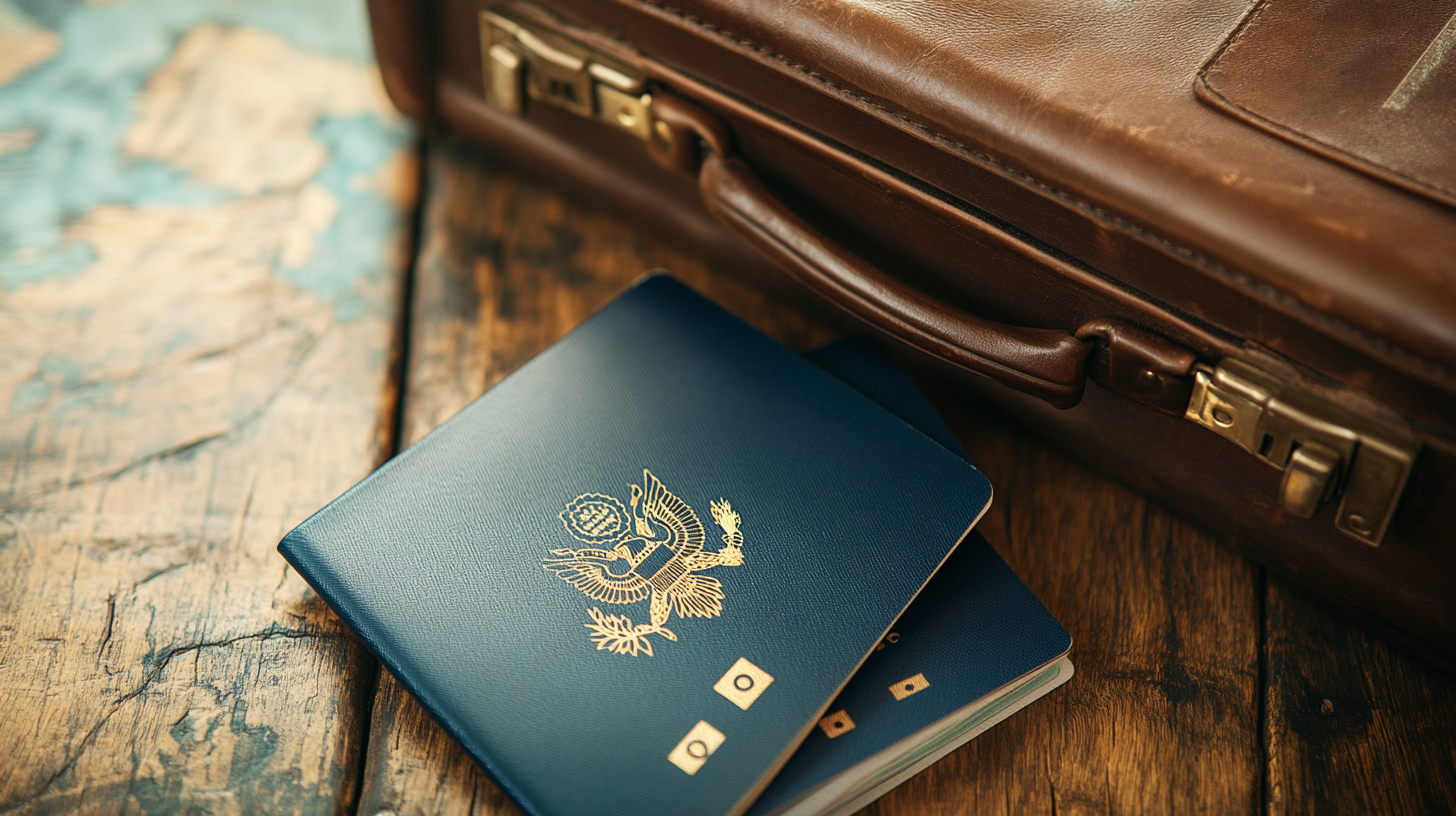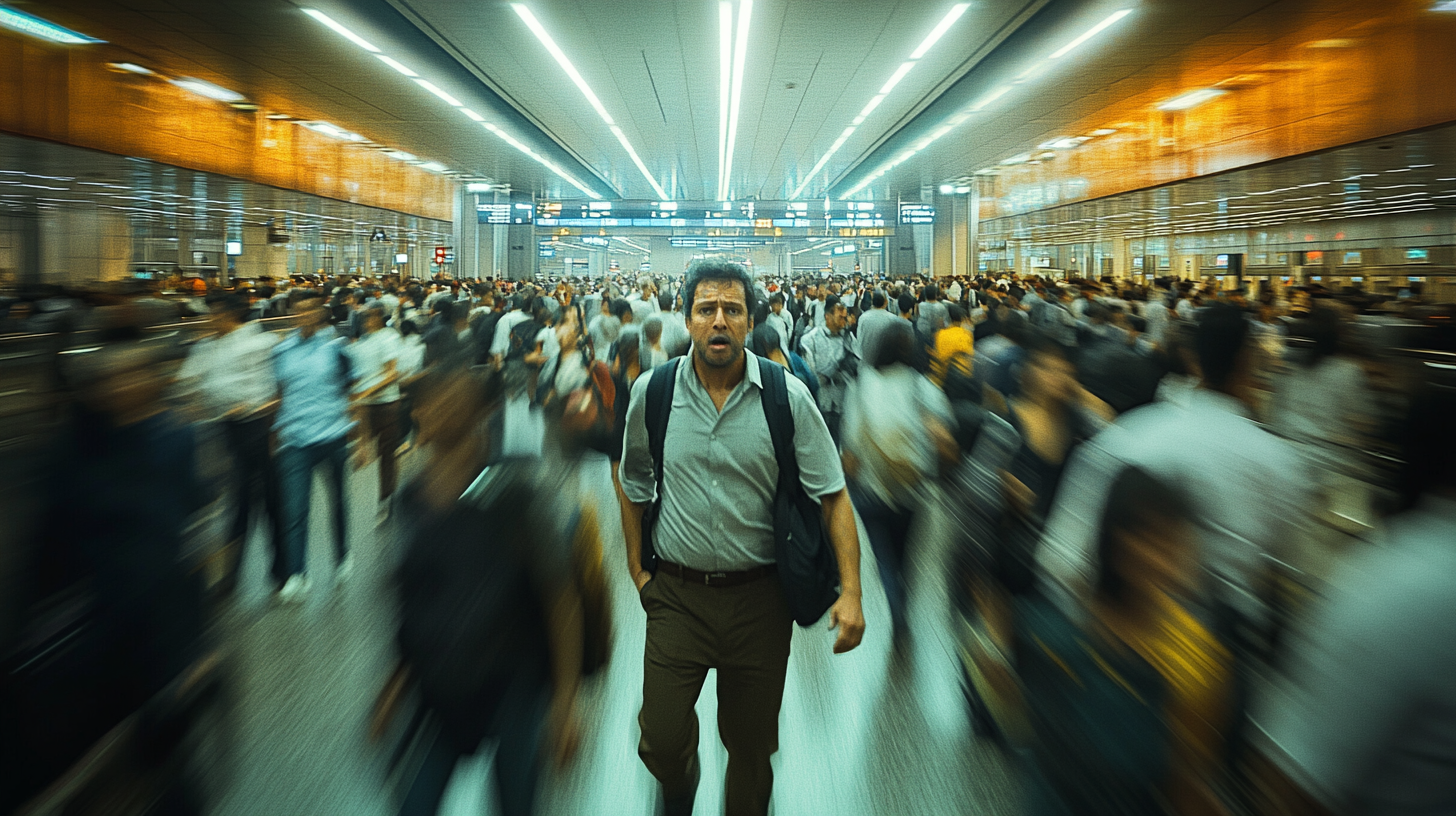
Avoidable Mistakes When Traveling: A Comprehensive Guide to a Smoother Journey
Traveling is an art that blends adventure with meticulous planning. It’s thrilling to explore new destinations, but common travel mistakes—such as overpacking, neglecting important documents, or mismanaging your itinerary—can disrupt even the most well-intentioned plans. Whether you’re a seasoned globetrotter or a first-time traveler, being aware of potential pitfalls is essential for a hassle-free adventure. This guide delves deep into the avoidable mistakes when traveling and offers practical tips, including Essential Travel Planning Resources , to enhance your next trip.
Overpacking: Less Is More

One of the most common travel mistakes is overpacking. Lugging around heavy suitcases can turn your journey into a burden, hindering your mobility and flexibility. Overpacking not only incurs additional baggage fees but also makes moving between destinations cumbersome, especially when dealing with stairs, public transportation, or long walks. According to seasoned traveler Darija Stojanovic, who has visited over 30 countries, “packing light is a skill that enhances travel experiences significantly.” Embracing minimalist packing techniques, as outlined in the Ultimate Guide to Packing Light for Travel , can drastically improve your travel comfort and efficiency.
To avoid overpacking, start by creating a detailed packing list of essentials tailored to your destination’s climate and activities. Choose versatile clothing items that can be mixed and matched to create multiple outfits, such as neutral-colored tops and bottoms. Consider the capsule wardrobe approach, which emphasizes minimalism and functionality— How to Build a Travel Capsule Wardrobe . Remember, most destinations have laundry services or facilities, enabling you to wash and reuse clothing during your trip. Utilizing packing strategies, like rolling clothes or using packing cubes, can maximize space and keep your luggage organized. Packing light not only saves money but also provides the freedom to navigate through airports, public transportation, and city streets with ease.
Consider utilizing anti-theft bags to keep your belongings secure without adding extra weight—features like slash-resistant materials and RFID-blocking pockets can protect against theft and electronic pickpocketing. Investing in high-quality travel gear, as suggested in Top Rated Anti-Theft Travel Bags , ensures your valuables are safe. Back up your travel photos digitally by using cloud storage solutions; this avoids the need to carry multiple devices or physical storage equipment. Platforms like Best Cloud Storage Options for Travelers provide secure and accessible ways to store your memories. Embracing the “less is more” philosophy can lead to a more enjoyable and stress-free trip, allowing you to immerse yourself fully in the experience.
Overpacking is a travel blunder that is entirely avoidable with mindful preparation and intentional choices. By prioritizing necessities and leaving non-essentials behind, you free up physical and mental space to focus on the experiences rather than the luggage you carry. Embracing minimalist travel can enhance your sense of freedom and spontaneity, allowing for easier movement and a greater ability to adapt to unexpected opportunities. For further tips on efficient packing, consult Expert Packing Tips for Hassle-Free Travel .
Overly Ambitious Itineraries: The Art of Slow Travel

The excitement of visiting a new place can be overwhelming, often leading travelers to create over-ambitious itineraries filled with back-to-back activities. However, cramming too many sights and experiences into a short span often results in burnout and reduces the enjoyment of each moment. Traveling should be about savoring quality experiences, not just ticking off sights from a checklist. As highlighted in the blog Common Travel Mistakes to Avoid , planning realistic schedules prevents rushing and allows for genuine engagement with the destination’s culture, people, and atmosphere. Embracing the principles of slow travel encourages deeper connections and more meaningful memories.
Allow yourself the flexibility to immerse in local culture, savor meals, and explore beyond the major attractions. Unscheduled time can lead to serendipitous discoveries—a quaint café, a hidden art gallery, or a local festival—that you might otherwise miss. Overplanning can restrict these spontaneous adventures that often become the most cherished memories. Carly, an experienced traveler, recommends optimizing travel routes and considering open-jaw or multi-city tickets to save time and reduce transit stress. Flexible travel arrangements, as explained in Planning Flexible Travel Itineraries for Maximum Enjoyment , can enhance your ability to adapt to new opportunities as they arise.
Incorporate buffer times into your schedule to account for unexpected delays, closures, or simply to relax and soak in the ambiance. This can include leisurely mornings, unplanned walks, or time to sit in a park and people-watch. A well-paced itinerary enhances enjoyment and reduces the risk of missing out due to fatigue or time constraints. Adopting the Benefits of Slow Travel Philosophy can transform your journey into a more fulfilling experience.
Remember, travel is not a race but a journey meant to be savored. Embracing the art of slow travel cultivates deeper connections with the places you visit and the people you meet. It allows you to appreciate the nuances of different cultures and environments, leading to more meaningful and memorable experiences. By prioritizing quality over quantity, you return home enriched rather than exhausted.
Neglecting Passport and Visa Requirements: Don’t Miss the Boat

Overlooking passport validity and visa requirements is a critical mistake that can lead to trip cancellations or denied entry at borders. Different countries have varying rules regarding passport validity, with many requiring that your passport be valid for at least six months beyond your planned return date. Renewing a passport can take several weeks or even months, so it’s imperative to check expiration dates well in advance of your departure. Additionally, some countries may require blank visa pages or have specific entry stipulations, so reviewing these details is crucial. Utilizing resources like the Official Passport and Visa Information Portal can provide up-to-date requirements for your destinations.
Research visa requirements for each country you plan to visit, including transit countries where you may have layovers. Some destinations offer visas on arrival or electronic visas (e-Visas), while others require in-person applications at embassies or consulates weeks or months in advance. Missing these requirements can result in denied boarding or entry. Darija Stojanovic emphasizes the importance of this step, noting that forgetting to renew your passport or secure necessary visas can derail travel plans entirely. She recommends consulting Comprehensive Visa Guide for International Travelers to ensure all documentation is in order.
Double-check that all travel documents, including flight tickets, hotel reservations, and identification cards, match your passport name exactly. Even minor discrepancies, such as missing middle names or hyphenation differences, can cause delays or prevent you from boarding flights. It’s advisable to carry both physical copies and digital backups of important documents, stored securely on encrypted devices or cloud services. Keeping these copies accessible ensures you can provide necessary information in case of loss, theft, or emergencies. Utilizing tools like Secure Travel Document Management Apps can help organize and protect your vital information.
Being diligent with these details not only ensures compliance with international regulations but also provides peace of mind. A smooth journey through international borders allows you to focus on the adventures that await, rather than facing unexpected legal issues or delays. Preparation in this area is an investment in the overall success and enjoyment of your trip.
Tight Flight Connections: Time Is of the Essence

Booking flights with tight connections is a risky endeavor that can lead to missed flights, additional expenses, and disrupted itineraries. Flight delays due to weather, mechanical issues, or air traffic are common, and a layover that’s too short doesn’t account for unforeseen circumstances like lengthy security checks, immigration procedures, or gate changes in large airports. Missing a connection can cascade into further complications, especially if subsequent flights are fully booked.
Carly advises against booking self-transfer flights or separate tickets on different airlines due to the higher risk of missing connections and the potential loss of checked luggage. When airlines don’t have interline agreements, they aren’t obligated to assist with missed connections caused by delays, leaving you responsible for rebooking and additional costs. Always aim for layovers that provide ample time—consider a minimum of two hours for domestic flights and three hours for international connections—to navigate between flights, especially when connecting through large or unfamiliar airports. Research the airport layout in advance using resources like Airport Navigation Guides for Travelers to better plan your transit.
Seasoned travelers recommend a minimum layover of two hours for domestic flights and three hours for international connections to account for possible delays and lengthy processes such as customs and immigration. This buffer not only accommodates unforeseen circumstances but also reduces stress, allowing you to move through airports without panic. If possible, book flights with the same airline or within an airline alliance to ensure better support in case of schedule changes or missed connections. Airlines within the same network are more likely to assist with rebooking and will transfer your luggage automatically. For more insights, refer to Guide to Managing Flight Connections Effectively .
Time management in travel is crucial, impacting every aspect of your journey from flight connections to sightseeing. By allowing sufficient layover times, you minimize the risk of missed flights, reduce stress, and provide yourself with a cushion to handle unexpected events. This proactive approach ensures a smoother journey to your destination and sets a positive tone for your trip.
Not Notifying Your Bank: Avoiding Frozen Funds

Imagine being in a foreign country and discovering that your credit card has been blocked when you try to make a payment or withdraw cash. Failing to notify your bank and credit card companies about international travel is a common oversight that can leave you stranded without access to funds. Banks’ fraud detection systems often flag unexpected foreign transactions as potentially fraudulent, triggering automatic freezes on your accounts as a precaution. This protective measure, while well-intentioned, can cause significant inconvenience if you’re not prepared.
The blog Travel Mistakes That Can Ruin Your Trip and How to Prevent Them emphasizes informing banks and credit card companies of your travel plans to prevent disruptions. Most financial institutions allow you to set up travel notifications online or through their mobile apps, specifying the countries you will visit and the duration of your stay. Ensure all your cards are covered, including any backup or seldom-used accounts. It’s also prudent to have customer service numbers saved separately—in your phone and written down—in case you need to contact them while abroad. Remember that international calls may require different dialing codes.
It’s also wise to carry multiple forms of payment, such as a primary credit card, a backup credit card, a debit card, and some emergency cash in both your home currency and local currency. Having diverse payment options ensures you have alternatives if one method fails. Be mindful of currency exchange rates and fees, as some providers charge hefty commissions or offer unfavorable exchange rates. Using secure payment methods, EMV chip-enabled cards, and ATMs associated with reputable banks can reduce the risk of fraud and excessive charges. Consider using Travel-Friendly Credit Cards with No Foreign Transaction Fees to save money.
Being proactive about your financial arrangements ensures you have uninterrupted access to your funds, providing peace of mind during your travels. Managing your finances effectively allows you to focus on enjoying your trip rather than dealing with preventable financial hassles. Familiarize yourself with local banking practices and consider setting up mobile payment options where available.
Ignoring Travel Insurance: Don’t Skimp on Security

Travel insurance is often overlooked in an effort to save money, with travelers opting to take their chances. However, this can be a costly mistake. Unexpected events such as medical emergencies, trip cancellations, lost or stolen luggage, or even natural disasters can incur significant expenses and logistical nightmares. As highlighted by multiple seasoned travelers, investing in comprehensive travel insurance safeguards against these financial risks and provides critical support when you need it most. Policies can cover medical costs, emergency evacuations, trip interruptions, and more.
Policies vary widely, so it’s important to select one that covers your specific needs, such as adventure activities, high-risk sports, or pre-existing medical conditions. Some policies also offer coverage for electronics, rental car damage, or identity theft protection. Experienced traveler Carly notes that skipping travel insurance can lead to substantial out-of-pocket costs that far outweigh the policy’s price. She recommends reading the policy details carefully and consulting How to Choose the Right Travel Insurance Policy for guidance.
Read the fine print and understand what is included in your coverage, including any exclusions or limitations. Pay attention to deductible amounts, maximum coverage limits, and claim procedures. Some credit cards offer travel insurance benefits, but they may not be as comprehensive as standalone policies and often require you to book travel with that specific card. Ensure your insurance covers medical evacuation and repatriation, especially if traveling to remote areas or countries with limited medical facilities. For comprehensive coverage, consider policies recommended in the Best Travel Insurance Providers for International Trips .
Travel insurance provides a crucial safety net, allowing you to embark on your journey with confidence. Knowing you’re protected against unforeseen circumstances allows you to relax and enjoy your trip fully. In the unfortunate event that something does go wrong, having insurance can be the difference between a minor inconvenience and a major crisis.
Overlooking Cell Phone Plans: Avoid Roaming Charges

Using your cell phone abroad without the proper plan can result in exorbitant roaming charges, sometimes running into hundreds or thousands of dollars. Overlooking the details of your mobile plan is a common travel mistake that can significantly inflate your expenses without providing additional value. Before departing, contact your service provider to explore international plans or add-ons that offer lower rates for calls, texts, and data usage while abroad. Alternatively, consider purchasing a local SIM card upon arrival for more affordable local rates, or utilize international SIM cards designed for travelers.
Darija Stojanovic recommends getting an eSIM or an international roaming package to stay connected without breaking the bank. eSIM technology allows you to download carrier plans onto your device without needing a physical SIM card, providing flexibility and convenience. Using services like Best eSIM Providers for International Travel can help you find suitable options. Alternatively, relying on Wi-Fi can be a cost-effective option, especially for data-intensive activities. However, be cautious of unsecured networks that could expose your personal data to cyber threats. Using a Virtual Private Network ( Top VPN Services for Secure Internet Usage Abroad ) can enhance your online security.
Various apps facilitate communication over Wi-Fi, such as WhatsApp, Skype, or Viber, allowing for free or low-cost calls and messages. Social media platforms also offer messaging and calling features. Download necessary maps, translation tools, and travel guides offline to reduce data usage. Applications like Best Offline Maps Apps for Travelers can be invaluable when navigating without internet access. Managing your connectivity proactively ensures you stay in touch with loved ones and have access to essential information without incurring unexpected costs.
Being informed about your cell phone options not only keeps you connected but also helps manage your travel budget. Avoiding unpleasant surprises on your bill post-travel allows you to reflect on your trip positively without financial regrets. Proactive planning in this area is both practical and financially prudent.
Staying on the Tourist Path: Missing Local Experiences

Restricting your exploration to tourist hotspots can limit your cultural experience, expose you to crowds, and lead to higher costs for food, accommodations, and souvenirs. Tourist areas often feature inflated prices and can lack authentic local charm, offering a diluted or commercialized version of the culture. Venturing beyond these zones allows you to discover hidden gems, interact with locals, and gain a deeper understanding of the destination’s true essence.
As suggested in Guide to Experiencing Authentic Local Culture While Traveling , engaging with locals and straying from the crowds can dramatically enrich your journey. Local eateries often offer more authentic cuisine at lower prices, providing an opportunity to taste traditional dishes made for residents rather than tourists. Visiting lesser-known attractions, parks, markets, and neighborhoods can mean fewer crowds, a more relaxed experience, and the chance to see how people truly live their daily lives. Participating in community events or workshops can further deepen your cultural immersion.
However, it’s important to balance adventure with safety. Research areas beforehand using reputable sources or consult locals at your accommodation for advice on where to go and places to avoid. Consider joining guided tours if venturing into unfamiliar neighborhoods, especially at night. Learning a few local phrases can enhance interactions, demonstrate respect for the culture, and often lead to warm receptions from residents. Tools like Essential Language Phrases for Travelers can help you communicate effectively.
By stepping off the beaten path, you open yourself up to unique and authentic experiences that make your travels truly memorable. These interactions and discoveries often become the highlights of a trip, providing stories and insights that can’t be found in guidebooks. Embracing the local way of life enriches your understanding of the world and adds depth to your travel experiences.
Not Checking In Online: The Importance of Early Check-In

Failing to check-in online may seem like a minor oversight, but it can have significant consequences. Airlines frequently overbook flights, anticipating no-shows, and passengers who haven’t checked in are at higher risk of being bumped or reassigned. Carly emphasizes the importance of checking in as soon as the option becomes available, typically 24 hours before departure. Early check-in not only secures your seat but may also provide benefits such as better seating options or the ability to note special requests.
Early check-in provides several advantages beyond securing your seat. It allows you to select preferred seating, receive real-time updates about flight changes or delays, and sometimes access expedited boarding options. Utilizing mobile boarding passes can further streamline your airport experience by reducing time spent in lines for check-in kiosks or counters. Many airline apps also provide additional features, as covered in Best Airline Apps for Stress-Free Travel , enhancing convenience and efficiency.
Most airlines offer mobile boarding passes, which can be saved to your smartphone’s wallet or app for convenience. This reduces paper waste and ensures you have one less item to keep track of. In cases where baggage needs to be checked, having already checked in online can expedite the process at dedicated bag drop counters, which often have shorter lines than full-service check-in desks. Just present your ID and receive your luggage tags, making the process quicker and more efficient.
Maximizing the tools provided by airlines, such as online check-in, mobile apps, and notifications, ensures a smoother start to your journey. Staying informed and proactive minimizes the risk of travel disruptions, helps you avoid unnecessary stress, and allows you to focus on the excitement of your impending trip.
Dining Near Tourist Hotspots: Taste Authenticity

Restaurants in tourist-heavy areas often cater to convenience rather than quality, with higher prices, standardized menus, and less authentic food. To truly experience the local cuisine, it’s advisable to venture into neighborhoods where residents dine. This approach not only offers better value for money but also enhances your cultural immersion by exposing you to traditional dishes and dining customs. Exploring local food scenes can be facilitated by resources like the Guide to Authentic Dining Experiences Abroad .
Researching dining options ahead of time or asking locals for recommendations can lead to delightful culinary discoveries and memorable meals. Locals can point you toward hidden gems that might not appear in guidebooks or online reviews. Avoid establishments with overly aggressive advertising, pushy hosts, or menus in multiple languages, as these are typically aimed at tourists and may not offer authentic cuisine or fair pricing. Embracing local dining etiquette, as detailed in Understanding Dining Customs Around the World , can further enhance your experience.
Exploring local markets and street food stalls can provide invaluable insight into traditional cooking methods, ingredients, and culinary culture. Sampling street food is often an affordable and delicious way to experience local flavors. Always exercise common sense with food safety—opt for places that are busy with local patrons, indicating a high turnover of food, freshness, and quality. Watching food being prepared in front of you can also give you confidence in its cleanliness. For tips on safely enjoying street food, consult How to Eat Street Food Safely While Traveling .
Savoring the local flavors is an integral part of traveling, providing a sensory connection to the culture and history of a place. Stepping away from tourist traps allows you to engage with the culinary landscape more authentically, often leading to richer and more satisfying dining experiences. These moments become cherished memories that contribute to the overall richness of your journey.
Final Thoughts
Traveling is a rewarding endeavor that broadens horizons, fosters personal growth, and creates lasting memories. While mistakes are part of the learning process, being proactive and aware of common travel pitfalls allows you to navigate them effectively and avoid unnecessary stress or expense. By planning carefully, staying flexible, and embracing the unexpected, you can enhance your travel experiences and make the most of every opportunity.
From packing wisely and managing finances to respecting local cultures and securing essential documents, each step contributes significantly to a smoother journey. Utilizing resources like Comprehensive Travel Planning Checklists can ensure you cover all bases. Remember that preparation is key, and investing time in planning can save you from stress, setbacks, and missed opportunities along the way.
Follow us back to BoardingArea for more travel tips and insights. Embark on your next adventure with confidence, armed with the knowledge to avoid these common pitfalls. By learning from the experiences of others and applying these practical tips, you set the stage for a fulfilling and enjoyable journey. Here’s to exploring the world and making memories that last a lifetime. Safe travels!





























